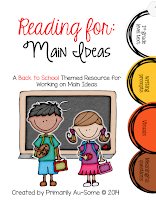I got a chance to go to OCALICON this past week. If you don’t know what OCALICON is, well, let me fill you in. OCALI is the Ohio Center for Autism and Low Incidence, and each year for the past 10 years they have held a conference. The conference is three days long and filled with amazing leaders in autism, behavior management, and all sorts of special education best practices and more! If you are lucky enough to every come to the OCALICON jump at the chance! I promise you won’t regret it!
While at the conference, I got a chance to see Brenda Smith Myles. If you don’t know who she is, she holds her doctorate in education, was presented over 500 times, and written more than 150 articles and books on Autism. She was also the co-chair of the National ASD Teacher Standards Committee, and has received many awards for the work that she does.
I was delighted to be able to sit in on her session! She talked about executive functioning, and I gained some good knowledge and techniques I’d like to share with you about it below! Executive Functioning are sets of skills that everyone uses to organize and act on information.
For Example- You ask a student to go back to his locker and get his assignment book. He leaves and returns with a book, a pencil, and a water bottle. You don’t understand how on earth he managed to leave and return with everything but what you asked him to get!
Want to know how he returned with those items? Well this is what happened in his head?
“I need my assignment book” walks down the hall, walks right past a water fountain. “Oh, I’m thirsty. I need my water bottle” Keeps walking. “getting my water bottle from my locker.” Keep walking down the hall. He spots a pencil on the floor. Picks it up. “New pencil for me.” Walking to his locker and finally gets to his locker. “What was I supposed to get?… I’m thirsty. Water bottle! Wait, I feel like there is something else I was supposed to get. I’m in English. It must have been my book.” He walks back to class. “I’m back. Why doesn’t the teacher look happy?”
The student lacks the ability to organize his thoughts and planning and organizing. Students with executive functioning issues are likely to have 8 skill deficit areas and may struggle with the following things.
- Flexible Thinking – this allows students to be able to adjust to unexpected events like fire drills, early releases, and a second recess!
- Emotional Control – helps students to not overreact in a situation. It helps them keep their feelings in check.
- Self-Monitoring – this allows students to look at how they are doing. Students with a weakness in this area may be upset up bad feedback in an area.
- Planning and Prioritizing – this helps children set goals and help plan to meet them.
- Task Initiation – this helps your student get started on a new task.
- Impulse Control – Helps students think about something before they act on it! I have lots of students who struggle with this.
- Organization – this helps students keep track of things both in their minds and things in their world.
- Working memory – this helps students keep key information in their mind while they carry out a task. Think students who struggle with following directions, even though you’ve told them a 1000 times!
So, what are the tips on ways to improve Executive Functioning in students?
Teaching information in small bites makes it easier to remember. Also, using a graphic organizer is a huge help too.
with the information will help to grow the student’s abilities to recall information.



















Leave a Reply